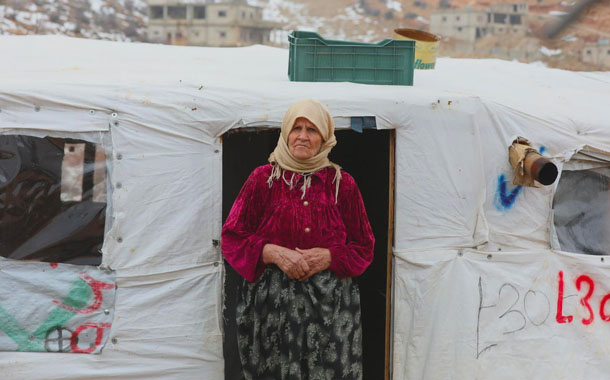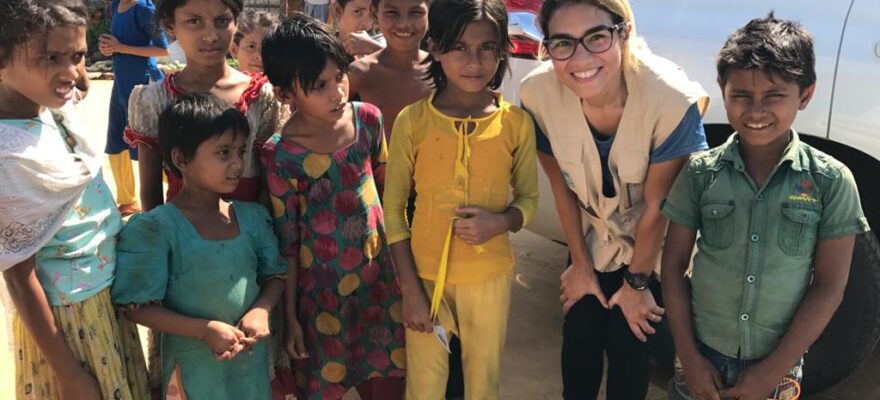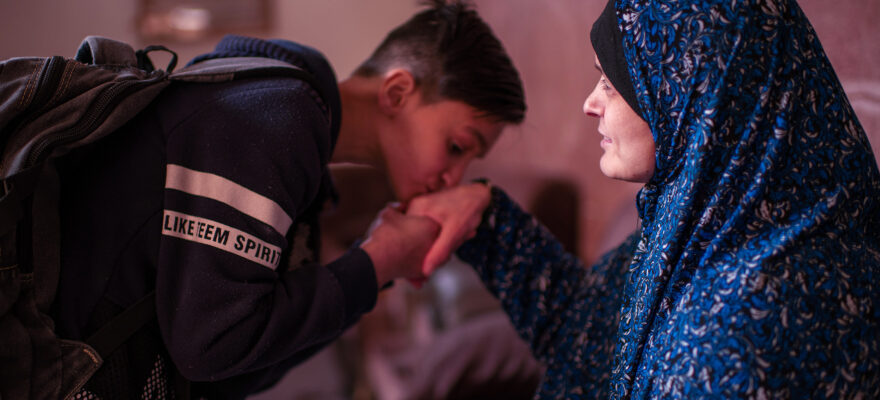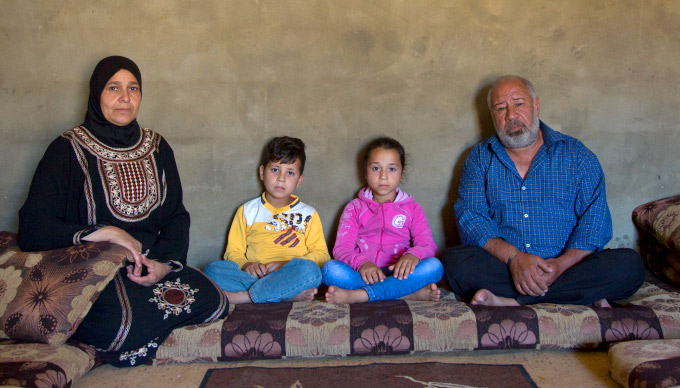Despite his harsh living conditions, Abu Safwan is keen to help others instead of asking for help, especially after he – along with his wife – lost their four children during the conflict in Syria, rendering them the sole breadwinner for their grandchildren, which also led him to help other orphans. Still affected by the loss of his children, Abu Safwan says: “my grandchildren have become my children, I held them on my shoulders and ran for our lives”. Abu …
Category: Beneficiaries
A special video from Raeda, a refugee mother in Lebanon, whom we met today while she observed the 6th of Ramadan. Remember them in your prayers.
Yemen is on the brink of famine. Parents are skipping meals to make ends meet. Thousands of people in Yemen are facing hunger and malnutrition, Simply because they cannot afford food. Women and children displaced by ongoing conflict are those most affected. Today you can help displaced families to afford warm food, clean water, and keep their children safe. Make the most of Dhul Hijjah and save a displaced family from hunger now. Please Give Now
“No good deeds done on other days are superior to those done on these.” Hadith. Yemen is on the brink of famine, and displaced families are most affected. Make the most of Dhul Hijjah and help us to reach 1,000 families with emergency cash aid. In these blessed days, you can protect vulnerable families like Hanan’s from hunger and malnutrition. Donate now
This Ramadan, every second of giving made a difference. Thanks to the incredible supporters like you, we were able to provide life-saving support to over 11,000 families for a whole year. To all the hearts that stood #WithRefugees this Ramadan. Thank you for your generosity. We invite you to remember refugees in your prayers and giving always.
If you meet Shakiba, you’ll notice that she talks a little bit too quickly. You might not understand some of what she is saying, but her story, her heartbreak and resilience should be heard. That’s what we are here to tell you about. Do you know that thousands of elderly refugees, like Shakiba and her husband, live in areas that reach sub-zero temperatures in winter? “When the bombing and violence started, some 15 people from my family died. We were …
Philanthropy has evolved over the past century and driven some of the most profound social impact success stories. At UNHCR, we develop partnerships with aspirations of achieving audacious results and successes. Our Refugee Zakat Fund is an innovative initiative that hopes to bring a catalytic and systemic change in the way we approach and perceive ‘giving’ in general, as well as, the way we look at support for refugees – dignified support. Of course, we cannot aspire alone. It takes …
Last Ramadan, UNHCR field staff in Lebanon and Jordan asked Syrian refugee families about how they are spending Ramadan – and we discovered something beautiful. Despite living in severe need, refugee families are praying for others every single day during Ramadan and beyond. Please watch this heartwarming video that we made out of the prayers that were caught on camera… “I pray for all mankind, may god enrich our hearts with kindness towards each other, and put mercy in the …
First and foremost, UNHCR’s global Ramadan campaign is the organization’s commitment to honor and celebrate the values of more than 60% of its persons of concern, who are, yet another year, observing the holy month away from home. In fact, Ramadan this year is like no other: refugees and internally displaced persons (IDPs) are living an emergency within an emergency and are one of the most vulnerable populations in the face of the global COVID-19 pandemic. Our responsibility towards the …
In the context of refugee crises, over 50% of refugee and internally displaced families are in debt. After losing their homes and possessions, and exhausting their savings, many are forced to incur debt to survive and pay for shelter, food, medication and education for their children. In addition, the time that many refugees or internally displaced persons (IDPs) spend away from their homes usually spans over years. Take the example of today’s biggest refugee crisis: Syria. The crisis has been …









Social Profiles